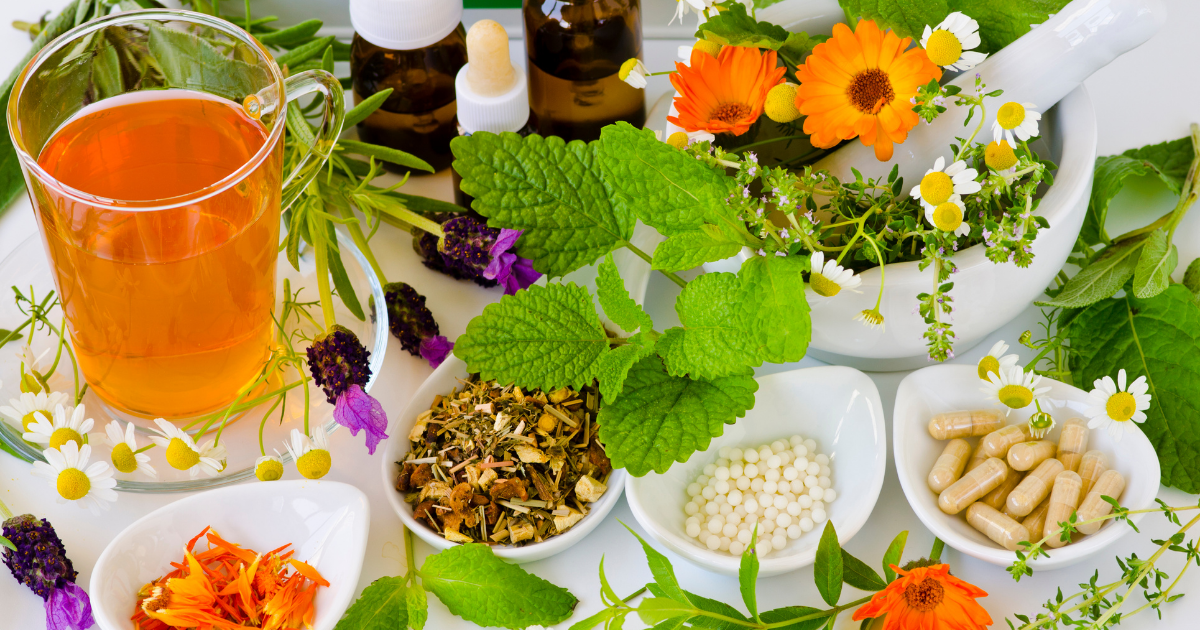Herbal Medicine

Herbal Medicine: Unlocking the Healing Power of Nature’s Remedies
Introduction
Herbal medicine, also known as phytotherapy, has been used for centuries to promote healing and support overall well-being. Derived from plants, herbs have played a central role in traditional medicine systems across cultures worldwide. In recent years, interest in herbal medicine has surged as people seek natural alternatives to pharmaceutical drugs for treating various ailments. With their powerful healing properties, herbs can offer effective solutions for a wide range of health issues, from boosting the immune system to alleviating stress and inflammation. This article explores the benefits, uses, and potential of herbal medicine for promoting health and healing.
The Benefits of Herbal Medicine
Herbal medicine offers a wealth of health benefits, many of which are rooted in ancient traditions but supported by modern scientific research. Some of the most notable advantages of using herbs for medicinal purposes include:
- Natural Healing: Herbal medicine harnesses the power of plants to promote healing without relying on synthetic chemicals or pharmaceutical drugs.
- Gentle and Safe: Many herbs are considered gentle on the body and offer a safer alternative to conventional medicines, particularly for those seeking non-invasive treatments.
- Holistic Approach: Herbal remedies often address the root causes of illness rather than just alleviating symptoms, making them a key component of a holistic healthcare approach.
- Wide Range of Uses: Herbs can be used to treat various conditions, from minor ailments like colds and headaches to more complex issues like chronic inflammation or digestive disorders.
Common Herbs and Their Medicinal Uses
Numerous herbs have been studied and used for their medicinal properties. Here are some of the most popular herbs and their potential health benefits:
1. Echinacea
Echinacea is widely known for its immune-boosting properties. It has been traditionally used to prevent and treat colds, respiratory infections, and other immune-related conditions. Echinacea can help stimulate the body’s immune response, reduce inflammation, and promote healing.
2. Turmeric
Turmeric, a powerful anti-inflammatory herb, contains an active compound called curcumin, which has been shown to reduce inflammation, support joint health, and improve digestion. It is commonly used to alleviate conditions such as arthritis, digestive issues, and even skin irritations.
3. Ginger
Ginger is another potent anti-inflammatory herb known for its digestive and pain-relieving properties. It is often used to treat nausea, motion sickness, indigestion, and inflammation. Ginger has also been shown to have anti-viral and anti-bacterial effects, making it useful in fighting infections.
4. Lavender
Lavender is prized for its calming and stress-relieving properties. It is often used to treat anxiety, insomnia, and headaches. Lavender oil can also be applied topically to alleviate skin irritations and improve circulation. Its soothing effects help promote relaxation and mental clarity.
5. Ginseng
Ginseng is a well-known herb in traditional medicine, particularly in Asia. It is often used to improve energy, reduce fatigue, and enhance mental performance. Ginseng has adaptogenic properties, meaning it helps the body cope with stress and promotes overall vitality.
6. Peppermint
Peppermint has been used for centuries to treat digestive issues, such as bloating, indigestion, and irritable bowel syndrome (IBS). Its menthol content provides a cooling effect, which helps relax the muscles of the digestive tract and relieves nausea, gas, and discomfort.
7. Valerian Root
Valerian root is commonly used as a natural remedy for anxiety, insomnia, and stress. It has sedative properties that promote relaxation and improve sleep quality. Valerian is often used to calm nervous tension and promote mental clarity.
8. St. John’s Wort
St. John’s Wort is a well-known herb used to treat mild to moderate depression. It contains compounds that help regulate serotonin levels, promoting a positive mood and emotional well-being. St. John’s Wort is also effective in reducing symptoms of anxiety and stress.
How Herbal Medicine Works
Herbal medicine works by harnessing the active compounds found in plants that have therapeutic effects on the body. These compounds can interact with the body’s systems in various ways, such as:
- Anti-inflammatory effects: Many herbs contain compounds that reduce inflammation in the body, which can help alleviate pain, swelling, and chronic conditions like arthritis.
- Antioxidant properties: Herbs like turmeric, green tea, and garlic are rich in antioxidants that protect the body from oxidative stress and free radical damage.
- Immune system support: Herbs like echinacea, astragalus, and elderberry are known to boost immune function, helping the body defend against infections and diseases.
- Digestive support: Herbs like peppermint, ginger, and fennel help soothe the digestive system, alleviate nausea, and improve overall gut health.
The therapeutic benefits of herbs are often more subtle than conventional medications, as they work to restore balance and promote long-term health rather than providing quick, symptom-focused relief.
How to Use Herbal Medicine
Herbal medicine can be consumed in various forms, depending on the desired effect and personal preference. Some common methods of using herbal remedies include:
- Tinctures: Concentrated herbal extracts made by soaking herbs in alcohol or vinegar. Tinctures are potent and can be taken in small doses.
- Teas: Herbal teas are a popular and gentle way to consume medicinal herbs. Steeping herbs in hot water allows the active compounds to infuse into the liquid.
- Capsules and Tablets: Many herbs are available in pill or capsule form, providing a convenient and standardized dosage.
- Oils and Ointments: Herbal oils, creams, and ointments can be applied topically to treat skin conditions or muscle pain.
- Powders and Extracts: Some herbs are available as powders or concentrated extracts that can be mixed into drinks or foods for easy consumption.
Safety and Considerations
While herbal medicine offers many health benefits, it is important to use herbs safely and responsibly. Not all herbs are suitable for everyone, and some may interact with medications or cause allergic reactions. It is essential to consult with a qualified healthcare professional before using herbal remedies, especially if you are pregnant, breastfeeding, or taking prescription medications.
Herbal medicine should be viewed as a complementary approach to healthcare, not a replacement for conventional treatment. It is always best to seek professional guidance when incorporating herbs into your wellness routine.
Conclusion
Herbal medicine offers a natural, effective, and holistic approach to health and healing. By tapping into the powerful properties of plants, herbs provide a wealth of therapeutic benefits that can support everything from immune health to emotional well-being. Whether used as a preventive measure or to address specific health concerns, herbal remedies continue to play a vital role in modern wellness practices. Embrace the healing power of nature and explore the potential of herbal medicine for a healthier, more vibrant life.
2 thoughts on “Herbal Medicine”
-
Pingback: Naturopathy - Scholarshiptea
-
Pingback: Alternative Medicine & Holistic Health - Scholarshiptea




Leave a Comment